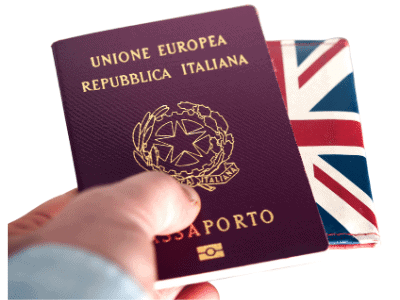List
Begin Your European Property Investment Adventure Europe—a continent rich in history, stunning architecture, and diverse cultures. If you’re considering buying …
Retirement is an exciting phase of life but requires careful planning, particularly when choosing where to spend your golden years …
Baja California is at the start of a 30-year growth phase, while lesser-known areas of central and northern Portugal are …
The right to free movement, living, studying, and retiring in the European Union attracts many foreign nationals to apply for …
Cyprus boasts one of the most favorable tax systems in Europe, offering numerous advantages to both individuals and legal entities …
Croatia has emerged as a prime destination for digital nomads, especially since pioneering Europe’s first Digital Nomad Visa (DNV) back …
Italy’s rich history, stunning landscapes, and vibrant culture make it an irresistible destination for property investment. However, the process can be complex, especially for foreigners. This guide offers essential dos and don’ts to help you navigate the Italian real estate market successfully.
Do Your Homework
1. Understand the Italian Property Market
Start by thoroughly researching Italy’s diverse property market. Each region offers a unique lifestyle and property market dynamics, from Venice’s romantic canals to Tuscany’s rustic charm and the Amalfi Coast’s glamour. Understanding these differences will help you find an area that suits both your preferences and budget.
2. Partner with a Reputable Real Estate Agent
Work with an experienced real estate agent who specializes in Italian properties. Their expertise will guide you through the numerous choices, provide market insights, and assist with legal requirements and negotiation strategies. A reputable agent will streamline your property search and help bridge the gap between your aspirations and the realities of the market.
3. Hire a Lawyer
Legal counsel is crucial when buying property in Italy. A trusted attorney with expertise in Italian real estate law will protect your interests, review contracts, conduct due diligence, and guide you through the legal nuances of your purchase. This ensures a smooth and legally sound transaction.
Decoding the Buying Process
4. Obtain a Codice Fiscale
You need a Codice Fiscale, a unique tax identification number, for various administrative and legal purposes in Italy, including property purchases, utility connections, and tax payments. This can be obtained from the local tax office or the Italian embassy or consulate in your home country.
5. Sign the Compromesso
Once you find your ideal property, you’ll likely sign a preliminary sales agreement, or “compromesso,” which outlines the sale terms, including price, deposit, and completion timeline. Ensure you review this document carefully with your lawyer to confirm it aligns with your interests and expectations.
6. Conduct Due Diligence
Thorough due diligence is essential. Verify ownership, check for liens, and ensure all permits are in place. Your attorney will play a key role in this phase, reviewing property records, past transactions, and land registry details to confirm a clear and legally sound property title.
Financial Prudence
7. Establish a Realistic Budget
Set a realistic budget that includes not just the purchase price but also taxes, notary fees, and registration costs. These expenses, which can vary by region, include the Imposta di Registro (registration tax), Imposta Ipotecaria (mortgage tax), and Imposta Catastale (cadastral tax). Notary and registration fees also need to be accounted for.
8. Prepare for Ongoing Costs
Property ownership comes with ongoing expenses such as property taxes (IMU), maintenance fees, and utilities. Understanding these costs is essential for effective budgeting. Property taxes vary by location and property type, while maintenance fees and utility bills for electricity, gas, water, and waste collection are regular expenses.
Embrace Italian Bureaucracy and Culture
9. Navigate Bureaucracy
Prepare for Italy’s intricate bureaucracy, which involves extensive paperwork, multiple appointments, and administrative processes. Patience and adaptability are crucial. Consider hiring local professionals to help streamline these procedures.
10. Embrace the Language and Culture
While not mandatory, learning Italian and understanding the culture can enhance your property-buying experience. It facilitates communication with sellers, agents, and officials, and fosters a deeper connection with the country and its people. Respecting local customs and culture helps build positive relationships and eases your integration into the community.
Avoid Critical Oversights and Pitfalls
11. Document Everything
Insist on written documentation for all agreements. Verbal agreements lack legal standing in Italy. Ensure all terms and conditions are documented to avoid misunderstandings or disputes.
12. Be Patient
Take your time with property acquisition. Rushing can lead to oversights and regret. Allow ample time for research, due diligence, and negotiation to make well-informed decisions.
13. Inspect the Property Thoroughly
Engage a qualified surveyor or building inspector to conduct a comprehensive property assessment. This safeguards against hidden issues and potential unexpected expenses for repairs or renovations.
Conclusion
Owning property in Italy promises a captivating journey filled with rich experiences and cherished memories. With meticulous planning, professional guidance, and cultural awareness, your dream of owning Italian property is within reach. Prioritize research, seek expert support, understand the buying process intricacies, and embrace the local culture to ensure a successful and rewarding investment in Italy’s enchanting landscapes.








Comments (0)